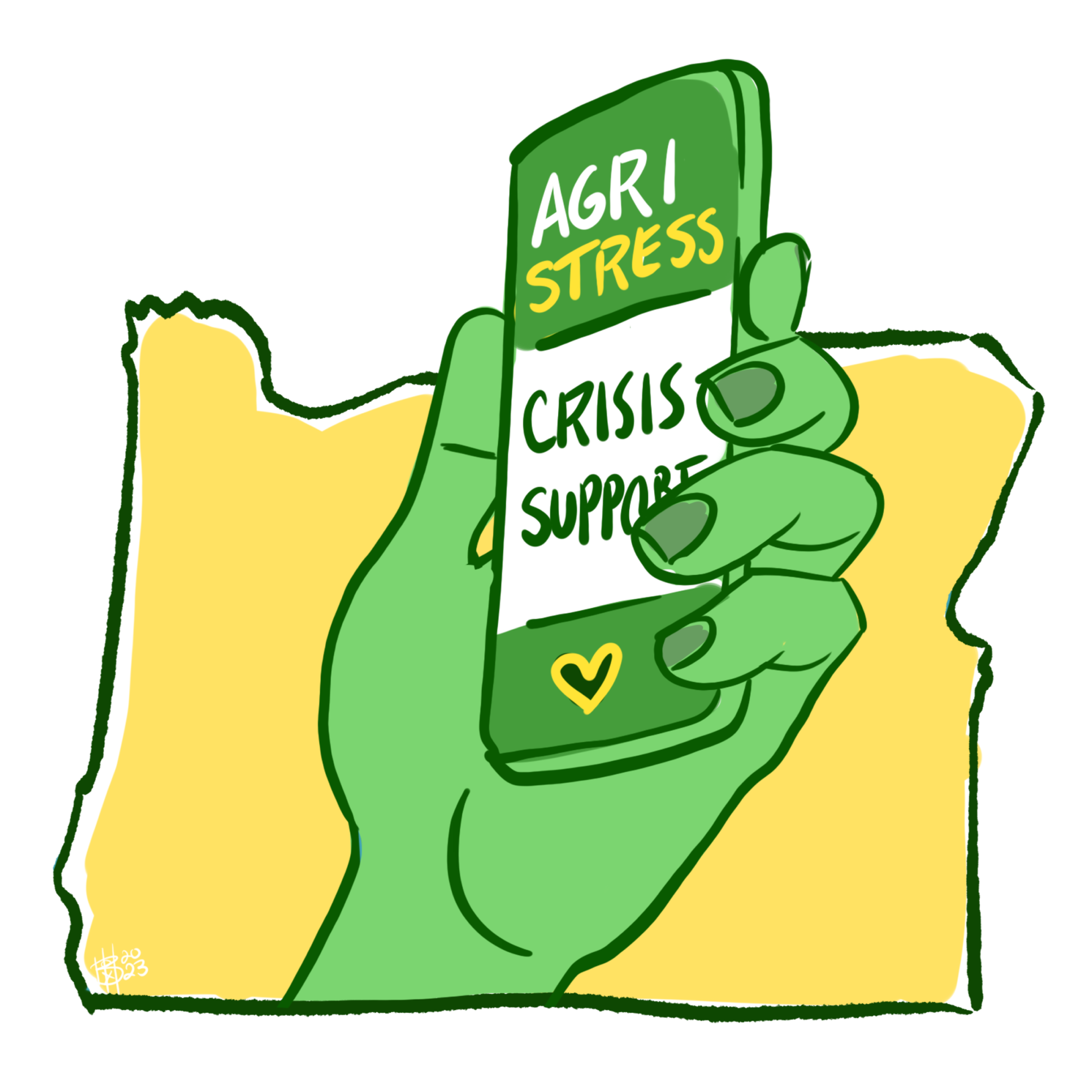Editor’s note: This article contains mentions of suicide.
AgriStress Helpline, a program aiming to provide mental health services in agricultural and forestry communities has spread to Oregon, its seventh state, with support from Oregon State University.
AgriStress has already provided service to Connecticut, Missouri, Pennsylvania, Texas Virginia, Wyoming and Oregon joined this list in September, with further expansion planned for this year. According to Tara Haskins, Total Farmer Health Director for AgriSafe Network, the AgriStress Hotline will come to Washington on Nov. 1, and Colorado and Montana on Dec.1.
In rural areas, access to healthcare is a challenge. According to Mental Health America, a nonprofit promoting mental health awareness, rural areas have 20% fewer primary care providers than urban areas. Mental healthcare access is difficult as well, and 65% of rural counties in America don’t have psychiatrists.
“Suicide rates are higher (in Oregon) than the national average and have been for decades,” said Allision Myers, OSU’s associate dean for Extension and Engagement.
Suicide is the second leading cause of death among people 5-34 years of age, and ninth leading cause of overall death in Oregon, according to the Oregon Health Authority.
“Death by suicide is much higher in rural areas compared to urban areas – and rural men have much higher rates of death by suicide than females,” said Laura Siegel, health communications officer.
According to Siegel, this is largely due to men having easier access to firearms.
In agricultural areas, social and geographic isolation, weather variability, limited access to health services and fluctuating commodity prices largely contribute to arising mental health problems for agricultural workers, according to the AgriStress website.
According to Siegel, farmers, farmworkers and ranchers face unique stressors and situations, which other hotlines aren’t fully equipped to handle.
“With AgriStress, farmers are more likely to speak with people who understand them and their work,” Siegel said.
AgriStress is different from other mental health hotlines as there are crisis specialists that are knowledgeable in the lifestyle of agriculture, forestry and fishing workers and their stressors, according to AgriStress.
According to the OSU press release, the AgriStress Helpline – 833-897-2474 – can be accessed 24 hours a day, seven days a week, through call or text. The voiceline will also feature 160 languages.
According to Myers, Oregon State University has largely contributed to the implementation of the AgriStress Helpline in Oregon.
OSU was given $300,000 in general fund appropriation from the state Higher Education Coordinating Commission for the establishment of AgriStress in Oregon, according to the OSU press release.
“OSU Extension Service, College of Health and College of Agricultural Sciences have all supported staff time and energy to implement the AgriStress Helpline in Oregon,” Myers said.
According to Seigel, there is a mental health care provider shortage across the nation, most noticeably in rural areas.
“The AgriStress Helpline is one step of many to help support rural communities,” Seigel said.



















































































































